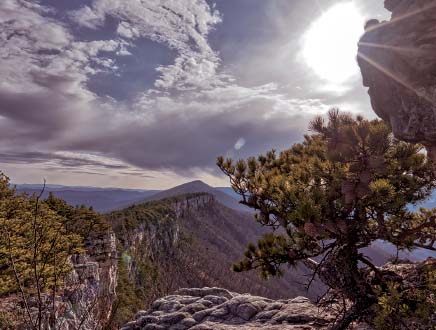Fintech

West Virginia is paving the way in a new sector of business and commerce called financial technology, or fintech—an emerging industry that uses technology to streamline activities in finance.
Though the average consumer may not be aware of this new term, fintech is already a part of many daily transactions by making financial services accessible from an app or website. The term includes any technology used in the financial services industry.
Reinventing the Collegiate Classroom

For the past two years, West Virginia’s two- and four-year public and private colleges and universities have been learning to navigate higher education during a global pandemic. The people, businesses and organizations of the Mountain State are known for their fighting spirit and innovative approach to problem solving, and through that lens, the staff at West Virginia Executive magazine decided to reach out to the education community to find out what unique solutions have been implemented.
Generation West Virginia

Fulfilling work, good wages, a strong connection to community and reliable internet service—these are just a handful of the things young workers want. While retaining young talent is on the wish list of many West Virginia companies and economic developers, there is one group with an inside perspective to make it happen and some dynamic efforts are already underway.
Introducing the Lawyers & Leaders Class of 2021

While those of us conducting our meetings over Zoom the past year may have struggled with background noise and technical difficulties, we knew the stakes of our calls were not all that high. However, leaders in the legal community have been meeting with clients, attending hearings and holding court through the eye of a webcam throughout the COVID-19 pandemic. Their perseverance toward justice is unwavering, and the dogged determination that saw them through law school saw them through the pandemic as well.
West Virginia’s $30 Billion Opportunity

West Virginia is on the cusp of a historic transfer of wealth that could revolutionize communities through thoughtful stewardship and organized philanthropy to drive economic development, entrepreneurship, education, arts and culture and strengthen quality of life for all.
Breaking Ground, Breaking the Mold

Perseverance and grit are hallmarks of the Mountaineer spirit. While Daniel Pearlson and Mark Ryan are Mountaineers by choice—not by birth—they have demonstrated enduring perseverance and grit in their commitment to West Virginia over the last five years. Their investments in the Mountain State span industries, from entrepreneurship, manufacturing and job creation to education, philanthropy and community building.






